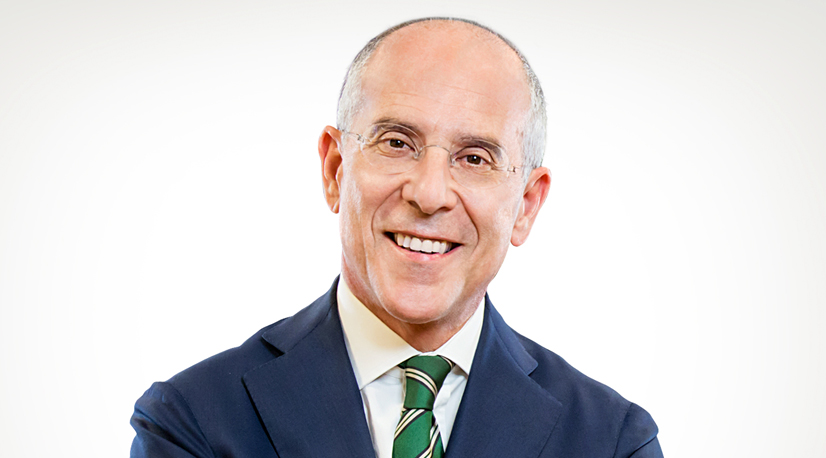
This article is a summary of what was published in Macrotrends 2021 by Harvard Business Review Italia.
of Francesco Starace
2020 will certainly have a special place in history. And, specifically, the electricity sector has been hit hard by the global pandemic both in terms of demand and consumption profiles, especially in those countries where restrictive measures have been implemented more decisively. In Italy, the reduction in consumption to its maximum reached 28%. The reduction in the demand for electricity by businesses was partially offset by an increase in domestic consumption (also by virtue of remote work). For 2020, globally, energy demand is expected to decrease by more than 5% compared to 2019 and 10% in the European Union, almost double the descent into the 2008-09 financial crisis.
But not all energy sources have been affected equally: the consumption of fossil fuels has been reduced much more than renewable sources. In Europe, coal production dropped by 25% during the first quarter of 2020, with renewables taking over the generation, reaching a share of 43% during the same period. Global CO2 emissions are also expected to decrease, up to 8%, or around 2.6 Gt: the levels of 10 years ago.
Now that the health, economic and social effects of the Covid-19 crisis have unfolded in all their force, it is becoming increasingly clear that this tragedy the world will have to be able to recover and become better again how it was before the crisis. From this point of view, there are encouraging prospective news in particular in Europe, starting from the response of the Governments that have been able to give an unprecedented proof of unity and vision both in facing the health crisis and in setting the response to the consequent economic crisis.
The Covid-19 crisis has shaken public opinion by highlighting the link between human activities, climate change and the alteration of natural balances. Public opinion has therefore understood that climate change does not just threaten the environment and that the melting of glaciers and extreme but increasingly frequent meteorological phenomena represent interconnected problems at a global level with concrete economic and social impacts. States, governments and businesses together with the whole of society are therefore reacting with renewed determination to this newfound awareness. The shock of the pandemic is acting, in this sense, as an extraordinary accelerator of phenomena and trends that were already underway, such as digitization and the progressive replacement of fossil fuels with renewable sources. And the new Commission, under the leadership of von der Leyen, wanted to reaffirm the European Union's ambition to position itself as a global leader in the fight against climate change, proposing an approach that leverages digitalisation and pursues a just and equitable energy transition.
The energy sector is one of the fundamental vehicles to revive the economy, European and Italian in a perspective of sustainable development. Companies operating in the green economy are more sustainable and more resilient, even to unpredictable shocks such as the one triggered by Covid-19, therefore less risky. Now governments and central banks are accelerating in this direction that markets and large funds had already taken.
Sustainability is fully integrated into the Enel business model and in its activities: providing for the complete decarbonisation of the production mix by 2050, with a series of intermediate milestones such as completion of the exit from coal in Italy by 2025, with the aim of promoting an equitable energy transition, in accordance with the UN Sustainable Development Goals. However, although it is not isolated, Enel's attention to sustainability still falls into a niche. Despite a clear growth in sustainable investments, finance still does not mobilize sufficient capital, necessary to achieve the SDGs by 2030. There is therefore a need for further efforts by the institutions.
To decarbonise means increase the penetration of renewables to the detriment of fossil fuels in electricity generation, thanks to digitalization and technological innovation that have made it possible to drastically reduce the cost of these technologies, while pursuing the electrification of a growing share of final consumption, freeing it from the fossil footprint.
The growth of renewables is both desirable and inevitable and is continuing inexorably, as evidenced by the fact that in the United States in 2019, after 134 years, renewables have overtaken coal for energy consumed or that in the first half of 2020 renewables generated 40% of electricity in the European Union, surpassing fossil fuels for the first time, which stopped at 34%. In 2019, more than half of the renewable installed capacity globally had lower generation costs than new coal capacity. The new photovoltaic and wind power plants are cheaper than the most efficient of the fossil plants. Furthermore, the reduction in the costs of installing and generating plants from renewable sources has not stopped. Worldwide, the cost of photovoltaic generation decreased by 13% compared to 2018. Also in wind power the reduction was significant and equal to 9%. By 2040, the global generation expected from wind power and solar photovoltaics, respectively, will exceed hydroelectric power. For Enel, in 2019, the installed capacity from renewable sources exceeded that from thermoelectric sources for the first time.
For Italy too, the energy transition has all the elements to represent the best solution for economic recovery. We will not have to get out of this crisis by rebuilding the previous world, as in 2008, but we must pursue a way out of the crisis by exploiting the opportunity that renewable energies and the green economy offer us to restart the investment cycle. Therefore, if we really want our economies and society, national and European as a whole, to continue in the name of well-being and with a view to inter-generational equity, we must promote sustainability, circularity and competitiveness, investing in accordance with the new paradigm. which considers sustainable development and social equity to be inseparable.
Francesco Starace he has been Chief Executive Officer and General Manager of Enel SpA since May 2014.






